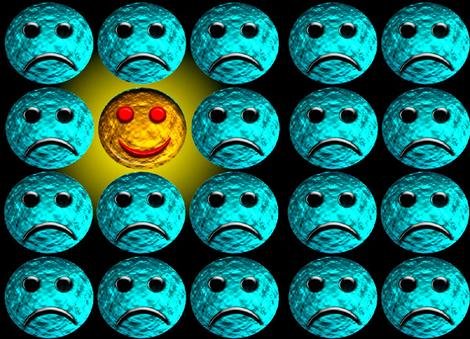
Human beings have a tendency to project impossible wishes onto figures that they deem to be capable of impossible things.
Some project these wishes onto parent figures — actual parent figures, or imagined ones if their real parents disappointed them (as most do).
Some project these wishes onto celebrities. This explains the presence of irrational celebrity worship in our culture.
Others project these wishes onto doctors, or other medical providers, including therapists. Mental health professionals run into this a lot. As I said in my recent book, psychotherapy and psychology are seen as ‘the answer’ for everything that medicine, God and the government cannot resolve.
Others, of course, project, their wishes onto a supernatural being. ‘This supernatural being cares about me, knows everything and can do whatever he wants.’ Is there really such an entity, or will there ever be? Obviously not, in reality. But in imagination, given the euphemism ‘faith,’ the fantasy lives on. Some even choose to kill over preservation of that fantasy.
And then, of course, there’s the government. One of the reasons government and religion are so at odds these days is that each is threatened by the other. Each competes for the human tendency to project onto external forces fulfillment of the impossible. ‘Pick me! Pick me!’ is what the various religious and political figures convey as they appeal to the weakest and worst in human nature. Even though Obama turned out to be a major disappointment to such people, they will support him for a second term and, win or lose, there will be another Obama to follow in the next phase of their fantasy.
The error in all of these cases, as diverse as they seem, is the same. The error is expecting others or another to do the impossible. It’s placing fantasy above reality, because reality is assumed to be a grim and impossible place, so that fantasy is all that’s left.
Such a fantasy fills a void where self-confidence in one’s own capacities should have been. The rare kind of person who doesn’t project these impossible desires onto others is the person of authentic self-confidence. Self-confidence stems not just from a belief in oneself personally, but also from a conviction that the human mind, via reason, can solve problems.
It used to be called a ‘can do’ attitude, but that phrase is long gone from American culture, even though admirable remnants of its implicit nature remain. A ‘can do’ attitude is not the product of belief in God, or a desire for other human beings to take care of you. A can do attitude is a belief that the human mind is capable, both one’s own and others’ minds, and that the constant need for human happiness rests on the ability to think and take competent action in daily life.
The extent to which you look to others, or another, to take care of you is the extent to which you lack confidence in the human mind (including your own). The extent to which you feel no need to project impossible wishes onto others is the extent to which you possess genuine confidence.
What fuels this need to project is the desire for the impossible. ‘I just want to be happy,’ many people feel. If asked, ‘What would make you happy? What would happiness look like?’ they draw a blank. All they can honestly say in reply is, ‘Well, I’ll just know it if I see it.’
But that’s no answer.
If you leave the definition of happiness to your unexamined feelings, you’re holding yourself hostage to the impossible. In the process, you’ll lose touch with the possible. And when your unhappiness grows by the day, you won’t know who to blame. If you’re like some, you’ll blame yourself. If you’re like many, you’ll blame others. But the blame really lies in your error, which was a failure to define your central purpose, at any given point in life, concretely and specifically.
It’s not enough to say, ‘I want to be happy.’ You have to know what you’re aiming at, and there must always be a plan for getting there. If and when you get there, you will need new aims, and new plans. It never ends, not even when you’re old and your aims become simpler and more basic. They’re still your purpose.
This human tendency to project onto a God, a government, a doctor, or anyone else these unspecified, largely subjective and impossible needs is what gets so many people into trouble. We can talk about ‘the illness of depression’ all we want, but that only describes the symptoms — not the underlying cause.
Happiness is not the fulfillment of unspecified, subjective desires. Happiness comes from a willingness to think, and the confidence which makes such thinking possible.
